Thangaiku Theriyaamal Amma Magalai Oothen
- 2 years ago
- 201
- 0
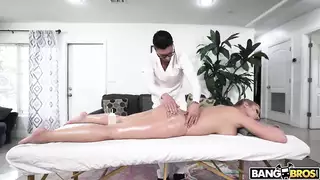
 2 years ago
2 years ago
Dot, Dorothea, and Dick Chapter One Dear sister: I found this letter among some others, scrolled up and tied with purple ribbon, in a chest belonging to our great grandfather. The name Charles has belonged to several in our family line, but I believe I know the one who received and saved this letter, and kept it preserved for so many years. I believe the letter speaks for itself, so I will now offer it up to you. Dearest Charles: I hope this missive finds you in such good...
 2 years ago
2 years ago
Our Last Day of School. I can’t believe it. This is my last day of school, I thought, not sure how I felt now that the long awaited day was here. Stepping out into the beautiful sunny afternoon, heading toward the group of waiting yellow school buses I breathed a sigh of relief. I was glad school was finished. Throughout High School like a ship at sea, I had plotted my course, studying hard. However, the Scholarship that many felt I had rightfully won had somehow ended up going to one of...
 2 years ago
2 years ago
“What’s wrong? What’s wrong?”Anthea looked up at her mum as she sat down at the dining table. “Nothing is wrong,” Anthea responded watching as her mum hurriedly dried her hands with a tea towel.“Is the baby okay? Are you okay? Is Jack okay?” she asked as her husband came into the room and pulled up a seat at the table.“We’re all fine Mum,” she responded exasperated with her mum’s anxiety. “I have something to tell you.”“Sit down Helen,” her dad snapped. “Give the lass a chance to speak.”Anthea...
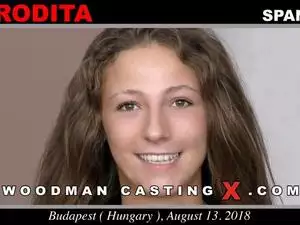 3 years ago
3 years ago
My Golden Summer with Blythe – Part 2 Josh’s childhood dream girl visits him in San Francisco. The Return of Blythe Coming from a small farming community, San Francisco proved to be everything Josh had ever imagined – and then some. He loved the freewheeling atmosphere – the friendliness – in short, he fell in love with the city by the Bay. Because of early retirements, and dedication to his work, he had advanced much quicker than he had ever expected. Arriving at his chic little Apartment...
 4 years ago
4 years ago
Uther By Ellie Dauber (c) 2006 Introduction According to the legends of King Arthur, Merlin changed Uther Pendragon into a double for Duke Gorlois, so he could spend the night with Ygraine, the Duke's wife. Ygraine and Gorlois had three daughters: Elaine, Morgause, and Morgan le Faye. During their time together, Ygraine became pregnant with the child who was to become King Arthur. Uther's men killed Gorlois that same night. This is my TG (of course) version of what...
 3 years ago
3 years ago
Chapter 11: Althea, the School Girl The infernal screeching of the alarm clock awoke Cal from his reverie. He had been up for about a half-hour, but he had only been lying in bed next to the love of his life. Althea's arms were still clutched about him as he stealthily clicked the snooze button, assuming that it was six o' five in the morning, his usual waking time during the school week. He had been thinking long and hard about the previous two nights. Evan... what have you become? He...
 4 years ago
4 years ago
edited by Master Ken Wednesday, September 4th, 2013 "Hi, I am Miss Blythe," I said to my class, writing my name on the whiteboard with a red dry-erase marker. "I will be your World History teacher." It was the first day of the new school year and, as I launched into the course syllabus, my thoughts kept drifting to that day in June at the end of the last term, when my Living God, the Holy Mark Glassner, walked into this very classroom and changed my very outlook on life. I didn't know...
 2 years ago
2 years ago
The the wind howled around the quayside as I stepped onto terra firma for the first time in weeks, the wind threw sharp shards of ice to sting our faces as we looked up at the sails as they were finally furled and stowed as our captain grinned at our discomfiture, "Au revoir!" he joked as if he knew we should soon be recalled. Those such as were left, and we were few enough, I shuddered. My best uniform packed securely in my Valise, awaited me, and just a few more duties before I...
 2 years ago
2 years ago
As he approached one of the hall's long mirrors he stopped to inspect himself. It was a familiar sight, the flowing, billowy French maid outfit surrounding his body. His arms and legs were outlined in silky, white stockings and arm-gloves. He wore pearl earrings and the lacy white collar around his neck was adorned with a beautiful pendant. It was a gift from mother that he wore every day, without fail. Jon's painted red lips and neatly applied eyeliner and blush were evidence that he was...
 2 years ago
2 years ago
PREFACE:There are no sex acts in the story but the patient does have an orgasm as a result of the Ther****t’s physical examination. Part 1 is the Sex Therapy appointment from the patient’s point of view and part 2 is the same examination seen through the eyes of the Ther****t. I don’t think it matters which one you read first.I hope you enjoy it and will let me know what you think in any...
 2 years ago
2 years ago
Katherine stepped into her elegant living room and took a book from the shelf. She sat in a plush lounge chair, specifically selecting a chair in the back corner of the room next to an old dumbwaiter that was once used to ferry delicious meals from the downstairs kitchen to the dining room table. She planned to read the book for a short while, but she already knew her attention would soon be diverted. Tonight the dumbwaiter would once again be placed into service, except this time it would be...
 1 year ago
1 year ago
Do you know of the porn site Motherless.com? You should. I’ve reviewed it a few times on my site, The Porn Dude, although it was for different genres every time. This time around, I’m going back to this place and looking at a specific and niche little category many of you are just begging me to cover. We’re looking at vintage porn today. While it doesn’t have the same resolution and quality as the porn you can find today, it’s definitely a genre of porn that has a lot of personality to it and...
Vintage Porn Sites 3 years ago
3 years ago
I should have known better. I should have remembered that old saying, "If it looks too good to be true, it is." I was in love. She was damned near all I thought about with the exception of my studies and it didn't make sense to me. I prided myself on my intellect and my ability to think logically, but there wasn't anything logical about the way I felt about Althea. She was beautiful, smart and very popular and I was not. I wasn't a bed looking guy, but I was nothing exceptional. I was...
 1 year ago
1 year ago
Motherless. A one-word website title that says everything it needs to say. This is a site where the rules are, more or less, completely thrown out the window, morality means absolutely nothing, and there is nobody to save you from it. Hedonism is God here.The site likely is also called this due to the fact that the girls who end up on motherless.com likely have no positive female influence in their lives to keep them from it. Motherless is the place parents spend their whole lives fearing that...
Porn Pictures Sites 1 year ago
1 year ago
I always considered Motherless the “4chan” of porn. Not only because Motherless was somewhat popularized there, but because Motherless also encourages users to share their own content in a very open way. This means minimal bullshit like moderation and censorship, and a strong “anything goes” attitude that leads to free and extreme content. It encourages people to create and upload their own homegrown content, like videos of their girlfriend pissing or spycam videos of their cousin....
Amateur Porn Sites 1 year ago
1 year ago
What is it about Motherless that makes me fucking cum every time? Maybe it is how raw and amateur the porn on the site comes across as, or the content is just that fucking hot. Perhaps it is the fact that there is an astronomical amount of pornography just waiting for a dumb fuck like you to beat off to! I really don’t know, and frankly, I’m not going to pretend that I do.But what I do know is that if you love BBWs, the Motherless.com homepage will not be of much use! Preferably, head on over...
BBW Porn Sites 1 year ago
1 year ago
Have you ever heard about a website called Motherless? Home to all kinds of kinky porn niches, with a side of the mainstream crap? If you are into some questionable fap content, you might want to check this website out. Plus, Motherless is a free porn website, so you can browse as much as you fucking want. Now, I am not really here to talk about the website in general… I am here to tell you about their amazing category, called voyeur porn.The world of voyeur fucking is a rather interesting one....
Voyeur Porn Sites 2 years ago
2 years ago
Clothesline[This story is part of the Leather in Lawnville series.] Clothesline By DuskPetersonYou can tell a lot about a guy from where he shops. Take my friends, who have specialized tastes. Some of them spend their time at the hardware store, while others take an interest in our town's fabric shop, which has needles and pins that make them drool. Still others hang out at the department store, eyeing the cutlery collection. Somehow all of us end up rubbing shoulders at the town's jacket...
 2 years ago
2 years ago
The Five Kingdoms of Arstoria had been embroiled in the Great Ancient War for centuries. The war came to an end when Kalace, the Wizard King conquered the five lands and brought them under his rule. Kalace, the Wizard King of Arstoria, conquered all of his opponents who were unable to deal with his overpowering magic. When Kalace had united the five kingdoms, he brought peace to the warring kingdoms and was revered and celebrated by his later generation. Kalace, however, had a dark weakness in...
Fantasy 1 year ago
1 year ago
Woah, did Motherless.com get a facelift? I know I suggested it in my review, so I guess they listened to me! Well, I’m not going to brag too much about it, and instead, I’m going to focus on what I’ve set out to bring you today. We’re looking at an amateur website, and I just know that many of you are begging for amateur creampie content, so that’s what we’re looking at. I know how much you think Motherless can look sickening and pretty gruesome at times, but the creampie content can be quite...
Creampie Porn Sites 1 year ago
1 year ago
No matter what type of porn you may be in the market for, Motherless has an ample supply of it, and cucking is no different. Actually, this might help to explain how you ended up being such a pussy little cuck.The journey that brought you to my website reading cuck porn reviews started in your childhood. A fair portion of my readership is actually motherless. Why, you ask? Your guys' moms chose a life of cucking and riding cock instead of raising you fucks properly.Don't worry, gents. I'm in...
Cuckold Porn Sites 1 year ago
1 year ago
I browsed the horror stash at Motherless all morning, and now I don’t know if I should jack off or go hide in the closet until the danger has passed. Then again, hiding out might give me the perfect opportunity to rub one out in the peace and safety of the dark. Who knows who—or what—might be peeping in the windows with nefarious intent if I sit at my desk and shake my dick at the screen. Just like when I masturbate at the local Starbucks, I’ve got to be sure to balance the potential pleasure...
Extreme Porn Websites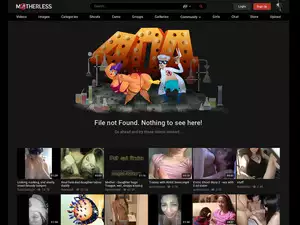 1 year ago
1 year ago
Incest porn has been a staple of pornography since the very first incel caveman realized that he couldn’t find fresh pussy out and about. He resorted to sniffing a whiff of his mother’s loincloth when she wasn’t looking, and beating his old cave meat into a leather sock.Now personally I’m not into the whole mommy-son dynamic – I’m a classy guy. But it’s no secret people like to get freaky when the lights go out, and if you’ve got a stiffy in your hand and you’re on Motherless, you gotta go...
Incest Porn Sites 4 years ago
4 years ago
Hi friends, indru tamil kama kathaiyil en sontha thangaiyai epadi oothen endra kudumba tamil kama kathaiyai ungal idam pagirugiren. Vaarungal tamil kama kathaikul selalam, en peyar prathap vayathu 28 aagugirathu. Enaku oru thangi irukiraal aval peyar mala vayathu 26 aagugirathu, avaluku innum thirumanam seiya vilai Avaluku thirumanam seithu vaikum alavirku engal idam ipozhuthu panam ilai, loan apply seithu atharkaaga kathukondu irukirom. Naan oru kama veriyan eppozhuthu pen kidaikum avargalai...
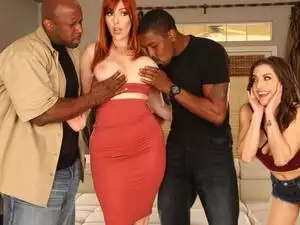 2 years ago
2 years ago
My name is Rebecca. Everyone calls me Becca. I entered the police department right out of college. I progressed rapidly, through different divisions and assignments. I always had my eyes set on Robbery-Homicide and after six years of hard word and dedication, I finally made it. At age thirty, I was youngest female in the division for such a coveted assignment, but I was superb at my job. I made it because of my skill not my gender. It was Saturday. Dispatch called our number just after we had...
Taboo 2 years ago
2 years ago
Thanks to my usual cast and crew of Editors and Advance Readers, most of whom prefer to pretend that they don’t know me and wisely wish to take no responsibility for any part of my addled writings... Il n’est rien de réel que le rêve et l’amour - Nothing is real but dreams and love (from Le Coeur innombrable, IV, Chanson du temps opportun by Anna de Noailles) She was my one true mistress and ever faithful lover, my Green Lady and guardian of my dreams and now that I was back home...
 4 years ago
4 years ago
Hi friends, indru kathaiyil en nanbanai kathal seithu emathiriya pennai ootha kathaiyai ungal idam pagirugiren. En tamil kathaiyai inaiya thalathil pathivu seithatharku nandri, en peyar pradeep vayathu 21 aagugirathu. En nanbanai oru pen kathal seithu matter mudinthathum kayati vitu vitaal, athanaal naan avalai usar seithu hardcore seiyanum endru mudithu seithen. En nanban enaku nanban endru kanbithukolamal aval idam muthal muthalil pesi pazhaga aarambithen. Aval pathini pola en idam nadika...
 2 years ago
2 years ago
Hi friends, indru tamil kama kathaiyil en kanavanuku theriyamal ilamaiyaana kaal kathalanai eppadi love seithen endra kathaiyai ungal idam pagirugiren. Vaarungal tamil kama kathaikul selalam, enathu peyar jaya vayathu 36 agugirathu. Enaku thirumanam aagi oru paiyan irukiraan pinbu en kanavanuku vayathu 42 agugirathu. Naan santhoshamaaga thaan vaazhnthu vanthukondu irunthen, naan oru teacheraaga velai paarthu varugiren. Naan velai seiyum classku arugil oru veedu irukirathu, antha veetil oru...
 2 years ago
2 years ago
My name is Anthony and I am twenty-two years old. I have extra-long dark hair and darker eyes. I tie my hair into a ponytail and have a close trimmed beard. I look handsome and enjoy keeping myself in shape. I am a lucky guy as I have a very sexy girlfriend who is two years older than me. Zoe and I met at a mutual friend’s party and hit it off right away. She has short blonde hair and blue eyes. Her small beautiful mouth sits beneath a cute button nose. All in all, Zoe is a goddess and I love...
Crossdressing 4 years ago
4 years ago
Hi friends, indru sex kathaiyil auntyai usar seithu eppadi matter adithen enbathai ungalidam pagirugiren. En peyar Seenu. Vayathu 21 aagugirathu. Naan ithu naal varai entha penaiyum sex seithathu kidaiyaathu. Naan engineering padithu varugiren, enathu nanbargal oru naal theaterku ennai azhaithaargal. Naangal neraga bar seithu saraku adithom, appozhuthu bagubali padam oodi kondu irunthathu. Naangal oru gramathil irukum theaterku sendru irunthom. Angu pothuvaga pengal athigam vara matargal,...
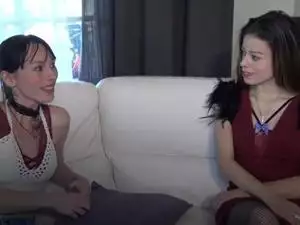 2 years ago
2 years ago
When the car with Jake in it became a dot on the horizon, Thea turned to go back in the house. Suddenly Floyd appeared. “Mrs. Thea, how you be?” Smiling, she knew immediately what he wanted. He had that look and a glance at his crotch confirmed it. The imprint of his cock was prominent as it pushed against the material. “Looks like everyone is gone.” Floyd said. His eyes looking out over the farm. “Yes, I am by myself for at least the next few days.” She replied in an...
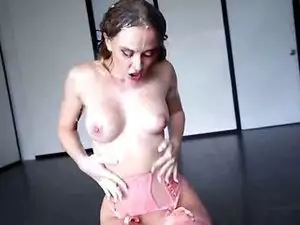 3 years ago
3 years ago
“Well, hell,” Thea said as she wiped the beads of perspiration from her face. “I guess ‘spring’ is here, huh?” “Yeah. It’s supposed to be cooler at higher elevation,” I replied. We took a few minutes in the shade by the rocks before rejoining our boyfriends. The four of us had driven up into the pass to hike. According to the weather report, the last coolness of a fading winter was supposed to continue through mid-week, but they were wrong. Actually, from our view from Eagle Point, where we’d...
 1 year ago
1 year ago
Motherless.com! What an original name for a porn site, don't you think? The title doesn't fuck around: your mother would never allow you to watch the kind of filth they’ve got on tap. They pride themselves on being a moral-free zone for sick fucks, where you can find damn near anything. I’m talking about desperate chicks fucking anything that resembles a dick and crazy bitches literally eating shit. When you’re done fapping to the weird vids, you can even find "normal" porno to pass the time....
Free Porn Tube Sites 1 year ago
1 year ago
Ah, motherless, here we are again. A site known for offering such a variety, that no matter how fucked up your needs are, there is a high chance that you will fulfill them here. However, I am not here to blab about the site in general; I am here to talk about one particular category, interracial. As for those who want to know more about the site, there is a whole different review on my website instead.As for those who came here to learn more about that interracial lovemaking, I got your back....
Interracial Porn Sites 3 years ago
3 years ago
Therese looked at the scene before her. Her father and brother naked, her grandfather’s cock sticking out of his trousers and her grandmother eating her mother’s cunt, both of us naked. Beth with the camera, filming. “God, the slut is only in the door and she’s gone sex mad.” she said referring to me. She went and sat on the arm of her father’s chair putting her arm around him and kissing him on the cheek. My father was now hard again. He pushed my mother out of the way and started to fuck me...
 3 years ago
3 years ago
Three months later, the sound of laughter made Thea Barton look up. The now twenty year -old blond-headed beauty was in the living room reading when she heard it. Recognizing the voice of Uncle Dan, she smiled as she waited to see whom he was going to be with. When the laughter grew louder, she smiled. Ah, yes! It was Irene, her now very good friend! Uncle Dan seemed to prefer her to the others. Her being married seemed to make no difference to all concerned parties. Thea smiled to herself,...
 2 years ago
2 years ago
This week’s show begins with that same old rusty bedstead, and that same old dirty mattress. Pausing to take in the magnificent filthiness of it, then pulling back to reveal the bare concrete floor around it, and to take in the harsh lighting. And then we hear our guest of the week approaching, quick little footsteps ... Light clicks on the studio floor. We pan round to see what we’ve got this week and see a slight, pale, small-boobed lady walking in quick, short strides ... She’s not is a...
 2 years ago
2 years ago
Hi, guys. It’s been a long time on ISS. I was away from the city. I hope you did like my other two stories(true incidents) which I had written. This is the next encounter I had with my aunt who was all alone and needed a little love for her. Her name is Bethesda and lived her whole life alone after her husband married another woman. I do have a lust for her and want her so badly. She is 45 years old and looks bomb. She got a good voluptuous body and looks like a brunette. As for me, I’m six...
Incest 3 years ago
3 years ago
My name is Anthony; I am twenty-two years old and live with my beautiful girlfriend Zoe. As you have read I have dark hair and dark eyes and I am clean shaven. Zoe is older than I am by a couple of years and is the driving force of our relationship. I am what many call a cross-dresser: a guy that gets great sexual satisfaction from dressing in women’s clothing.Of course, my girlfriend knows all about my cross-dressing. In fact, she encourages me to cross-dress. Once a week, generally on a...
Toys 2 years ago
2 years ago
Theo had been changing into the squirrel too much, he knew that now... as a pulse of heat raced through his body from his groin. He realized that he shouldn't have come to the office.He had been spending most of his days at the squirrel in his home deep in the countryside. Teleworking most of the time, as the squirrel he felt no need for clothes, his heavy furred balls resting between his thighs as his paws raced over the keyboard. The sharp claws on his paws clattering loudly as he typed,...
Fantasy & Sci-Fi 1 year ago
1 year ago
It’s time to go to the land of chocolate fountains and golden showers. That’s right. Scat, piss, shit, and every fluid in between. Ever fuck a chick in her ass and freak out when you see that little bit of shit on your dick? Then I’m sorry to say that scat isn’t for you buddy. Were you the only one of your friends that saw two girls one cup and didn’t get grossed out? If so, it’s time to celebrate it! Don’t get pissed off, get pissed on! Scat porn has the craziest, kinkiest chicks and dudes...
Scat Porn Sites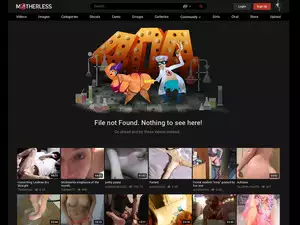 1 year ago
1 year ago
I’m not saying anything controversial when I say men love seeing women naked. It’s a fact of life as fundamental as gravity. It’s a force of nature that cannot be stopped by beast, man, or God. It’s an eternal truth and a divine mandate. As sure as the sun will rise, men will attempt to view as many women naked as they possibly can. Any man not doing so is either a sad or a gay one.This means that any woman a man sees regularly is mentally stripped down during every interaction. If any women...
The Fappening 3 years ago
3 years ago
Clayton Smithers was really glad he had listened to his mother when she told him he should become a doctor. Mom had always told him it would be a lot of work but worth it in money and prestige. She had been only part right. Hardly any work had been required, just learning the jargon and technical terms by studying books and papers written by psychiatrists who had taken the hard route to obtaining their degrees. Clayton Smithers had taken the easy route, buying his degree from the best diploma...
 3 years ago
3 years ago
‘To me it’s not really a green. When I think green, I think of grass. That’s more like lemonade color.’ Erica’s nose was far too close to the glasses for my taste. Pouring the nearly clear absinthe over the rough-cut, cane-sugar cubes I favor, I tapped my spoon for a second to get her to back up. I wished I had my full setup here like I have at home, my Absinthe fountains water drippers are missed when I began to try and slowly pour water over the sugar cube. ‘Don’t you light it on fire?’ she...
 1 year ago
1 year ago
Have you ever heard about a wonderful site called “Motherless”? I have a feeling that was a dumb question, of course, you fucking have. Well, I am here to talk about Motherless, but I shall also pay special attention to their Arab category. If you think Arabian sluts are hot, well you are in for a tasty treat, believe me.First, I should probably warn you that the name of this place comes from the fact that their content might be a bit too hardcore or questionable for some of you. Back in the...
Arab Porn Sites 1 year ago
1 year ago
Fuck yeah, life’s a bitch! So here I am, awake at 3:45 AM, after dreaming I was fucking this freaking hot MILF neighbor with heavy boobs, a flat tummy, a nice bubble butt, and sexy long legs. It was all hot and steamy, up until when she was sucking me off and just as I was about to obliterate her cute face with hot cum canon, my dream cut right off and I woke up with a tent on my pajamas.That dream ain’t coming back, but damn it! I sure gotta cum, so I boot up my laptop and type “cum facial” in...
Facial Cumshot Porn Sites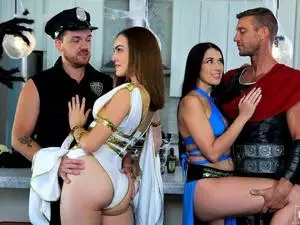 4 years ago
4 years ago
Her head had been on the brink of falling onto my shoulder for the past 15 minutes. Every time, I thought I’d feel her soft locks brush against my skin, the train would rattle and she roused herself up again. It was torture. I could clearly see she could barely muster the energy to sit up straight again, and I could no longer bear the torture of anticipating the sensations to come and still not feel her on my shoulder. I couldn’t help but let out an exasperated sigh when the train suddenly...
 2 years ago
2 years ago
I had met Gunther while attending a boring conference out of town.Of course my beloved hubby had not been there for sure.He was a young athletic Austrian guy, handsome and muscled. A real gentleman, but I felt he had a dark past and I wanted to know it…Now Gunther was in town and my hubby was out; so I agreed to meet him at a local pub, I knew it was not the sort of place I would normally go with a man on my first date; but I did not care about it…I decided to wear my tightest black leather...
 3 years ago
3 years ago
Absinthe 2: The Absinthe of Malice By Morpheus The flight from Seattle to Boston had been extremely long and uncomfortable, even with the two hour delay in Chicago where I got to stretch my legs and change flights. My book had given me something to do during the countless hours in the air, though admittedly, Collin had been my largest savior from boredom. The two of us had ended up talking for over half the flight, and by the time we finally landed, I was even starting to consider...
 4 years ago
4 years ago
Und draußen schallte wieder Punkmusik aus dem Ghettoblaster – von der Eisenbahnunterführung bis zu seinem Haus! Punks und Skater hingen da ab. Das war diese Art von Jugendlichen, die ihren Eltern das Leben schwer macht , die von Arbeit nichts hielten, sich an keine Regeln hielten, ständig auf Party machten. Die soffen viel zu viel und kotzten dann in irgendeine Ecke. Denen bedeutete doch nichts und niemand etwas. Wahrscheinlich nahmen sie auch Drogen und trieben weiß-Gott-was mit...
BDSM 2 years ago
2 years ago
Anna introduced Ethel to her father, Jonas Strong, when they met him in Wilsonville. Jonas was owner and manager of the bank and was a pillar of the community. He was surprised to see a woman dressed as Ethel was, but was completely taken by her when he found out that she had saved his daughter's life. He was impressed by any woman who had the gumption to be a gunfighter, and he was further impressed by the way she was armed. Jonas wanted to get to know Ethel better, so he and Anna stayed...
 2 years ago
2 years ago
Ethel developed a really great liking for Adam Strong in the week she spent visiting them. He did not exactly remind her of her dead husband, Archy, but he had a lot of the same characteristics that she had loved in Archy. His main attraction, though, was that he let her be her. Adam did not try to change her to fit some sort of "ideal woman" in his eyes. Ethel hated to leave at the end of her week's visit, but she knew that she had to if she was ever going to satisfy her vendetta against...
 1 year ago
1 year ago
Motherless is the mother of all porn sites. Motherless has no conscience or moral guide. Motherless will show you the stuff that all other porn sites are afraid to put up. Motherless will do this for free. This is seriously one of the nastiest and raunchiest sites out there and Motherless/Fetish is perhaps one of the dirtiest places on the web that are well within reach. Sure you can scan the dark web and find something even more naughty or puzzlingly gross, but why do that when you’ve got...
Fetish Porn Sites 2 years ago
2 years ago
Jake Peters and I watched the lady friends of Lynette Peters as they played cards at the kitchen table. Jake's comments about Betty, and how he wouldn't mind a roll in the hay with her, surprised me. Jake always dated girls around his own age. Betty was probably in her mid to late thirties. She was pretty, blond and sported a curvy figure. Not overweight, comfy would be the best description. I did notice that she was eyeing us up a bit more than the other women were. But first a brief...
MILF 4 years ago
4 years ago
The next afternoon, Ethel, Hester, and Anna rode into Wilsonville. Ethel had her horse, but the other two ladies were riding in a carriage driven by Anna. Ethel was planning to open her bank account and stay over to play poker, but the other two were going to do some shopping and return home in time for supper. They met Jonas for dinner (lunch to you damyankees) and had a very nice meal at the hotel restaurant. Of course, it was not up to what Hester could and would fix, but it was still...
 2 years ago
2 years ago
After tea on the Friday evening Thelma stopped me as I was going into upstairs to my room. Her eyes looked wild and her breathing was heavy. “I’m going to a party,” She said in a low voice, “do you want to watch me getting undressed?” I nodded like a puppet. “Wait in my room…I’ll be up in five minutes.” I skipped up the stairs two at a time! I nervously let myself into my sister’s bedroom. I’d been in many times before – borrowing her dirty knickers and stuff to use...
 4 years ago
4 years ago
Harry and Rob sat in the local pub in their usual spot in the corner by themselves. They were having a discussion about what to do with Ethel. Rob has been adamant that he wants to hang Ethel by her ankles and butcher her. Harry strongly disagrees with him. Harry is convinced that if he talks to Ethel he can persuade her not to go to the authorities and they will be able to use her the same way the other men. Rob agrees to try Harry's way first but he says" if she wants to argue I'm going to...
 4 years ago
4 years ago
kEthel sat with her tits nailed to the work table. Her tits were swollen to twice their normal size from the beating they had received from Harry and Rob and the axe handle. Ethel sobbed both from the pain and the feeling of despair and hopelessness. She knew she would not be able to sweet talk the men into letting her go without anymore abuse. Harry and Rob arrived and again Ethel begged and pleaded with them to let her go. The men laughed and told her they still had a few more things they...